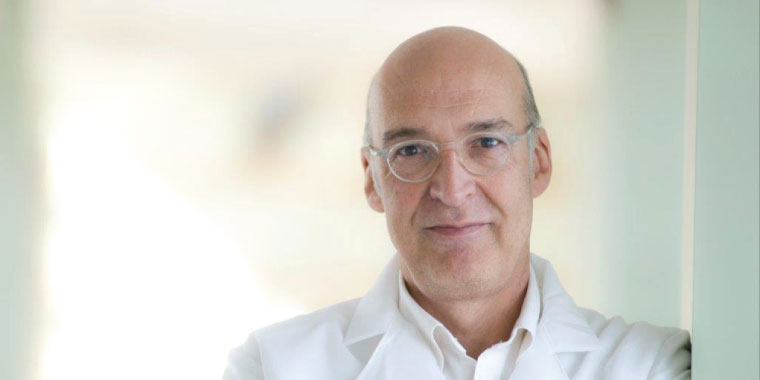Leonard Calabrese, DO, Leads Groundbreaking Empathy study

According to world-renowned HIV researcher and KCU Board of Trustees member and alumnus, Leonard Calabrese, DO, a physician’s ability to empathize has quite an impact on the process of healing.
“Empathy is the driver of healing,” Calabrese said.
Calabrese, an immunologist at the Cleveland Clinic, is leading a groundbreaking nationwide project to study empathy and its relationship to osteopathic medicine. The study, sponsored by The American Association of Colleges of Osteopathic Medicine (AACOM) in collaboration with Sidney Kimmel Medical College of Thomas Jefferson University, will involve 28,000 first-year medical students, including from both KCU campuses in Kansas City and Joplin.
“One of the most important skills a physician can possess is the ability to communicate empathy about their patient’s situation and diagnosis,” said Richard Winslow, PhD, vice provost for enrollment and student services at KCU. “As medical educators, we need to do everything in our power to ensure that KCU graduates possess this skill and the capacity for compassion.”
Beginning in the fall of 2017, first-year medical students will take a comprehensive empathy self-assessment. All students will take the assessment in the spring, with the results measured and studied. While there are limited data on medical students and empathy, small studies have suggested that students enter medical school with empathy, but some lose it in subsequent years.
Calabrese wants to know if it is possible to teach empathy to student physicians. He believes a doctor’s connection to a patient helps the healing process as well as with maintaining good health.
“We want people to adopt healthy behaviors,” Calabrese said. “How do you get them to do it? You have to connect with them, and empathy is the key. You have to understand where they are coming from.”
AACOM notes this is the first nationwide project to study empathy in medical education. Outcomes will be used to assess standards and curriculum in osteopathic medical education and will have the potential to impact medical education across all health professions.
“Who doesn’t want their doctor to be empathetic?” Calabrese asked. “There is rich science here.”